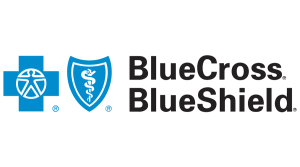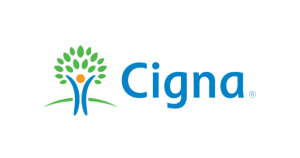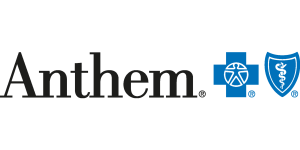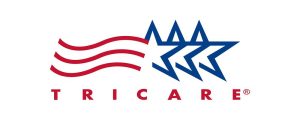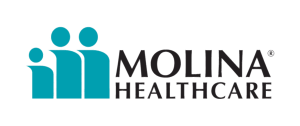Can You Bring Your Laptop to Rehab?

A Guide for Executives Who Need Flexibility and High-End Treatment
For high-level professionals, entrepreneurs, and business leaders, going to rehab often comes with one critical question:
Can you bring your laptop to rehab? And what are the guidelines for laptops during treatment?
For many, the idea of completely unplugging from work is just not an option. Yet, recovery is just as urgent.
Luckily, luxury executive rehab centers are designed to meet this tension head-on, offering treatment environments that support both clinical healing and limited, structured connectivity.
In this blog from ExecutiveRehabs.com, we’ll explore how having a laptop in executive rehab can be part of a balanced, respectful recovery plan and what to expect from tech-friendly luxury rehab centers that cater to high achievers.
Can I Bring My Laptop to a Treatment Center?
In most traditional rehabs, the answer is: no. Standard programs have a strict no-device policy to remove distractions and create a fully immersive healing environment. Most treatment facilities enforce these rules to maintain a structured, distraction-free environment that supports focus and treatment.
But in luxury executive rehab programs, the answer is more complicated. Many high-end facilities recognize that executives and professionals can’t disappear from their companies or obligations for 30+ days without some level of digital access.
The allowance of laptops and other electronics depends on many factors, including the specific policies of each rehab facility and the impact on recovery.
Yes, you can bring your laptop to rehab: if you’re in the right kind of program, the kind of facility that we can help you locate, one matched to your needs and designed to work with your requirements for care.
Exec Rehab Centers Offer Access to Laptops and Internet Access
These rehabs offer supervised access to laptops, tablets, and phones, with clear boundaries and therapeutic goals. Guidelines and restrictions on laptop use are defined and apply to other electronics like tablets and cell phones. Allowing electronics in rehab is a thoughtful decision balancing connectivity with the need to prevent distractions and triggers.
After access is granted, internet access and internet use are restricted or monitored to support treatment and focus. Drug rehab and alcohol rehab centers have different policies on electronics, and even permissive rehabs regulate device use.
Rehab clinics and facilities may have lists of prohibited items, so be sure to check those before admission.
Spending too much time on devices can hinder recovery, so limits are set to prevent overuse. Staying connected with loved ones and the outside world is important, but boundaries are necessary to protect the healing process.
Computers are sometimes allowed for work, but use is limited to specific times. Addiction treatment and rehabilitation programs are designed to support recovery while minimizing distractions.
Why Executive Rehabs Offer More Flexibility
Luxury rehab centers are designed for clients who demand privacy, autonomy, and high personalization. This includes accommodations for working remotely during treatment, especially when abstaining from work would create more stress than relief.
Allowing limited device use in these settings offers many benefits, such as supporting mental well-being, reducing stress, and facilitating communication with loved ones.
Staying connected with work and family during recovery can be critical for emotional stability and the overall effectiveness of treatment.
Professionals in recovery may need to:
- Respond to urgent business matters
- Join investor or board meetings
- Manage legal, financial, or team responsibilities
- Communicate with key stakeholders
- Stay connected with support networks
Executive rehabs are the only treatment environments that can integrate these realities into a healthy recovery plan. These facilities typically feature:
- Private workspaces or business lounges
- Monitored Wi-Fi
- Scheduled “work blocks” separate from therapy hours
- Concierge-level calendar coordination
- Digital wellness coaching and support
This combination of structure and access allows professionals to stay connected without compromising treatment. If you have questions about specific policies or need guidance, speak with treatment specialists to get clarity and support.
The Clinical Rationale for Structured Laptop Access
Don’t be mistaken: recovery comes first in tech-permissive luxury rehabs. These programs don’t offer free-for-all screen time—they offer clinically guided digital flexibility.
Therapists and case managers often work with clients to:
- Define what “essential work” really means
- Create boundaries between work and wellness
- Schedule tech access during specific hours
- Limit exposure to digital stressors and triggers. Some activities, like watching TV or movies, can trigger cravings and hinder recovery, so access is often restricted or monitored. Spending too much time on devices can also be a distraction, making it harder to focus on healing and learning recovery skills. Structured access helps clients stay focused, supporting effective treatment and long-term sobriety.
This type of support is particularly helpful for clients who struggle with workaholism, burnout, or anxiety driven by over-connectivity—common issues among high-achieving professionals.
By planning for intentional tech use, luxury rehabs help clients build not just sobriety but a sustainable work-life balance that can support long-term recovery.
Tech-Friendly Luxury Rehabs: What to Look For
If maintaining limited work involvement is non-negotiable for you, you need to find a rehab center that can accommodate that without sacrificing therapeutic depth.
Here’s what to look for in a tech-friendly luxury rehab:
- Executive programs with private workspaces
- Flexible daily schedules with therapy, wellness, and designated work time
- 24/7 concierge services to coordinate meetings or manage logistics
- Individualized treatment plans that respect your professional role
- On-site IT and cybersecurity support for handling sensitive or confidential data
- Therapeutic focus on digital wellness, mindfulness, and intentional tech use
- Clear policies on e-readers and other electronics, so devices like Kindles and tablets are allowed only with approved content to support recoveryInternet access is another factor—some rehabs allow limited or supervised internet connectivity to help residents stay in touch with loved ones or manage essential responsibilities, others have stricter policies. Be sure to check each center’s policy on internet access and device use to find the best fit for you.
Some centers even offer executive retreats or hybrid programs that combine remote work with part-time or outpatient recovery, depending on the severity of the addiction or mental health concern.
Healing and Responsibility
If you’re asking, “Can you have your laptop in rehab?”—what you’re really asking is: Can I heal without abandoning everything I’ve built?
The answer is yes: if you choose the right program (and that’s exactly what we are here to help you accomplish).
Luxury executive rehabs understand that total disconnection isn’t always realistic for C-suite leaders, entrepreneurs, attorneys, physicians, and other professionals in high-stakes roles. The best programs won’t shame you for needing to stay lightly plugged in.
And they will make sure their offerings embrace evidence-based practices aligned with SAMHSA (Substance Abuse and Mental Health Services Administration) precepts.
They’ll help you use your electronics and get your duties done intentionally, healthily, and with support. Even rehabs that are more permissive with device use still have clear rules and restrictions in place to support recovery and minimize distractions.
Whether it’s through scheduled work periods, peer accountability, or therapy focused on boundary-setting and identity beyond your career, the goal is always the same: to help you recover, not just detox.
Recovery Without Disconnection: A New Model
Modern executive rehab centers are redefining what it means to “unplug.” It’s no longer a binary of “all in or all out.” Instead, today’s leading programs help you:
- Set healthy limits with digital tools
- Redefine productivity through wellness
- Reconnect with yourself, not just your inbox
- Step back from the urgency culture and restore your clarity
Maintaining some level of connection to the outside world during rehab is important as it helps you stay informed, prepare for reintegration, and reduce anxiety about real-world responsibilities.
Healing doesn’t require you to vanish. It requires you to show up fully for yourself, with the same commitment you bring to your work.
Staying Connected with Loved Ones During Rehab
Staying connected with family and friends can be a vital source of support during the treatment process for substance use disorders. Many rehabs recognize the importance of this and make opportunities for patients to stay in touch with their loved ones.
Depending on the facility, patients may be allowed to use cell phones during designated free time or have access to computers and other electronic devices to communicate with family and friends.
Before entering treatment, it’s a good idea to check with the rehab center about their policy on device use and communication so you know what to expect and can plan accordingly.
In addition to personal communication, many rehabs offer family therapy sessions as part of their programs. These sessions provide a structured environment for patients and their loved ones to address challenges, improve communication, and strengthen relationships.
By staying connected and involving family members in the recovery process, patients can benefit from a stronger support system, increased motivation, and a greater sense of purpose as they work towards overcoming substance use disorders and building a healthier future.
Get Discreet, Personalized Help for Professionals Today
If you or someone you know is struggling with substance use or burnout but can’t afford to disconnect entirely from work, you are not alone, and you do have options.
At ExecutiveRehabs.com, we specialize in helping professionals find confidential, tech-permissive treatment programs that fit their responsibilities and their recovery goals.
We connect you with the most discreet, high-end rehab centers in the country—places where privacy, performance, and personal transformation are equally respected.
Contact us today for a private consultation.
Let us help you find a treatment environment where you can heal, without losing touch with what matters most.
Find Executive Treatment Centers Now


Harold Jonas
Harold Jonas, PhD, LMHC, CAP is a recognized expert in the behavioral health industry, specializing in addictions. He creates innovative solutions for the individual, the provider and the systems of care. Over the past 35 years, his desire to be of service has led him toward developing healthcare business models aimed at successfully merging the helping profession with capital enterprises.


